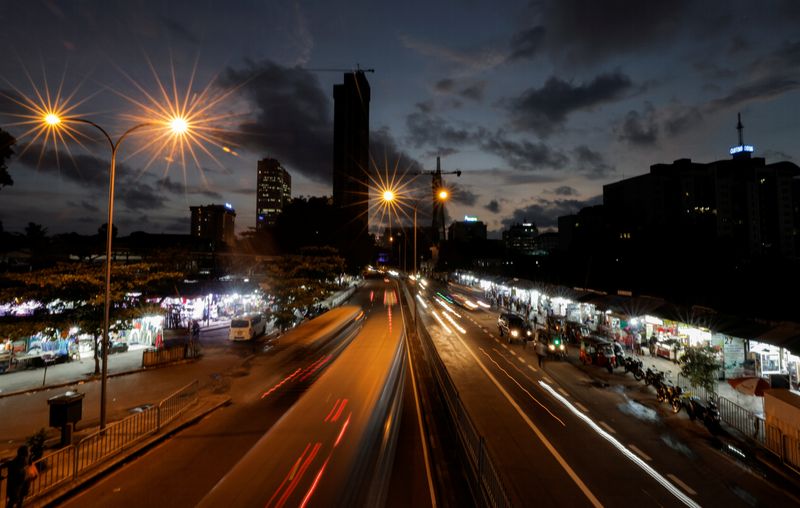Sri Lanka clinches $12.5 billion bond rework deal in pre-election dash
2024.09.19 09:16
By Libby George, Karin Strohecker and Uditha Jayasinghe
LONDON (Reuters) – Sri Lanka reached a draft deal with creditors to restructure $12.5 billion of international bonds, it said on Thursday, in a major boost to the island nation’s fragile recovery just two days before its presidential election.
The country defaulted on its foreign debt for the first time ever in May 2022, engulfed in a severe crisis and buckling under its high debt burden and dwindling foreign exchange reserves.
The agreement comes after Sri Lanka began a third round of formal debt restructuring talks with bondholders last week. The country had to renegotiate parts of a previous draft deal, which it announced in July, after objections from the International Monetary Fund and official creditors. Getting sign off from both is a prerequisite to executing the deal.
It also finalized a preliminary deal to restructure $3.3 billion in debt with China Development Bank, one of Beijing’s two main trade policy banks.
“Sri Lanka now expects to receive formal confirmation from IMF staff that the Agreement in Principle and the Local Option, taken together, are fully consistent with the parameters of Sri Lanka’s IMF-supported Program,” the Sri Lankan government said in a statement.
“Sri Lanka will continue to work with the OCC and its secretariat to secure confirmation of compliance of the Agreement in Principle and the Local Option with the Comparability of Treatment principle,” it added, referring to the Official Creditor Committee.
Once Sri Lanka gets the formal sign-off from both parties, it said it would commit “its best efforts to expedite the implementation of the restructuring in respect of the bonds.”
President Ranil Wickremesinghe said the IMF is likely to visit Sri Lanka two weeks after the election.
Its international bond prices rallied as much as 2 cents by 1004 GMT to bid between 53.3-54.5 cents on the dollar, Tradeweb data showed.
But the country’s tight presidential race on Saturday cast some doubt over the fate of the final deal, as two front-runners have expressed interest in changing some terms of the country’s IMF bailout, which could also impact restructuring efforts.
REVISED TERMS
The latest draft agreement raised the GDP thresholds under which bondholders would get bigger payments under so-called macro-linked bonds. The previous agreement would have triggered at a GDP of $92 billion-$100 billion, while Thursday’s agreement increased those targets to $94 billion-$107 billion.
It also lowered some of the coupon payments. But the haircut on the nominal amount of existing bonds is 27% under the new deal, from 28% under the agreement announced in July.
In a nod to its local investor base holding international bonds, the proposal offers those an option to swap into a mix of U.S. dollar denominated bond and local currency bonds. It would also allow the government to pay local holders in Sri Lankan rupee if it is unable to make a payment in dollars.
The new deal also included a number of other clauses, giving bondholders the option to change the law underpinning them from New York to Briatin or Delaware.
Lawmakers in the U.S. state of New York, whose laws cover a vast chunk of international emerging market debt issuance, have mooted a controversial bill that would make significant changes to debt restructuring and bondholder rights.
Sri Lanka’s leaders hailed the agreements as major steps forward in the country’s efforts to emerge from more than two years of debt default.

“With this Sri Lanka will be officially out of temporary moratorium of servicing foreign debt,” Foreign Minister Ali Sabry said in a post on X. “In other-words as some people have referred, out of bankruptcy!”
Spokespersons for the Paris Club Secretariat, which handles communications for Official Creditors, the IMF and the Local Consortium of Sri Lanka did not immediately respond to a request for comment. The Steering committee of the Ad Hoc Group of Bondholders declined to comment.








